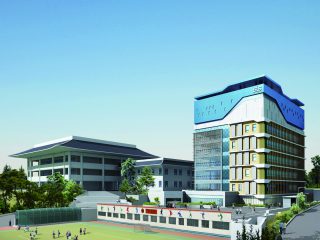The Yonsei University Center for Counseling and Coaching Services provides counseling services to members of Korea’s foreign-born community. “Our department tries to serve foreigners in Korea, especially foreign workers and multicultural family members who need [foreign] language services,” explains Esther Jang, a pastoral counselor for the center. “So we have counselors from seven countries—[from] China, Japan, India, Africa, Cambodia—so they can speak their own languages.” Counselors who trained in the United States speak English. The pricing scheme reflects the diverse economic circumstances of Korea’s international community. Jang says, “We evaluate clients’ economic status. If the person is hired by an American company, for instance, insurance pays for it, so we charge, but if their economic status doesn’t provide for counseling services, we provide ten free counseling sessions”
Counselors are largely doctoral students in Yonsei University’s counseling department. Some have already gotten their doctorates, while others are still studying. For them, the center represents a clinical training process. Residents, interns, and staff counselors are present, too. The center’s counseling programs are tailored to the particular needs of foreign residents. “We are doing individual counseling—depression and anxiety issues,” explains Jang. “Adjustment issues—when you come overseas, you struggle on how to adjust to a new society.” Spiritual issues are not ignored, either. Says Jang, “We are also Christian-based, so we also do counseling on spiritual matters.” The center takes into account the needs of foreigners with families, too. “We also have a children’s play therapy, so if you have children who have difficulty adjusting to Korean schools, we have children’s therapy, too,” Jang notes. Addiction intervention is also offered.
The center currently has about 20 clients who come in on a mostly weekly basis. There are plans afoot to expand services. “We are trying to create support groups for foreigners or gyopo (overseas Koreans) who come back to Korea, and are training counselors from other countries so that when they return to their own countries they can start counseling programs,” explains Jang. “Especially in South Asia, where counseling is pretty new. They don’t have enough clinical places to get proper training, so perhaps our center could become a frontier for training.”
FYI>
Counseling and coaching sessions are by appointment only. To make an appointment, send an email to info@yiccs.or.kr.
http://yiccs.or.kr
GO>
The main office is a 10-minute walk from Mapo-gu Office Station 마포구청역 (Line 6), Exit 3.




